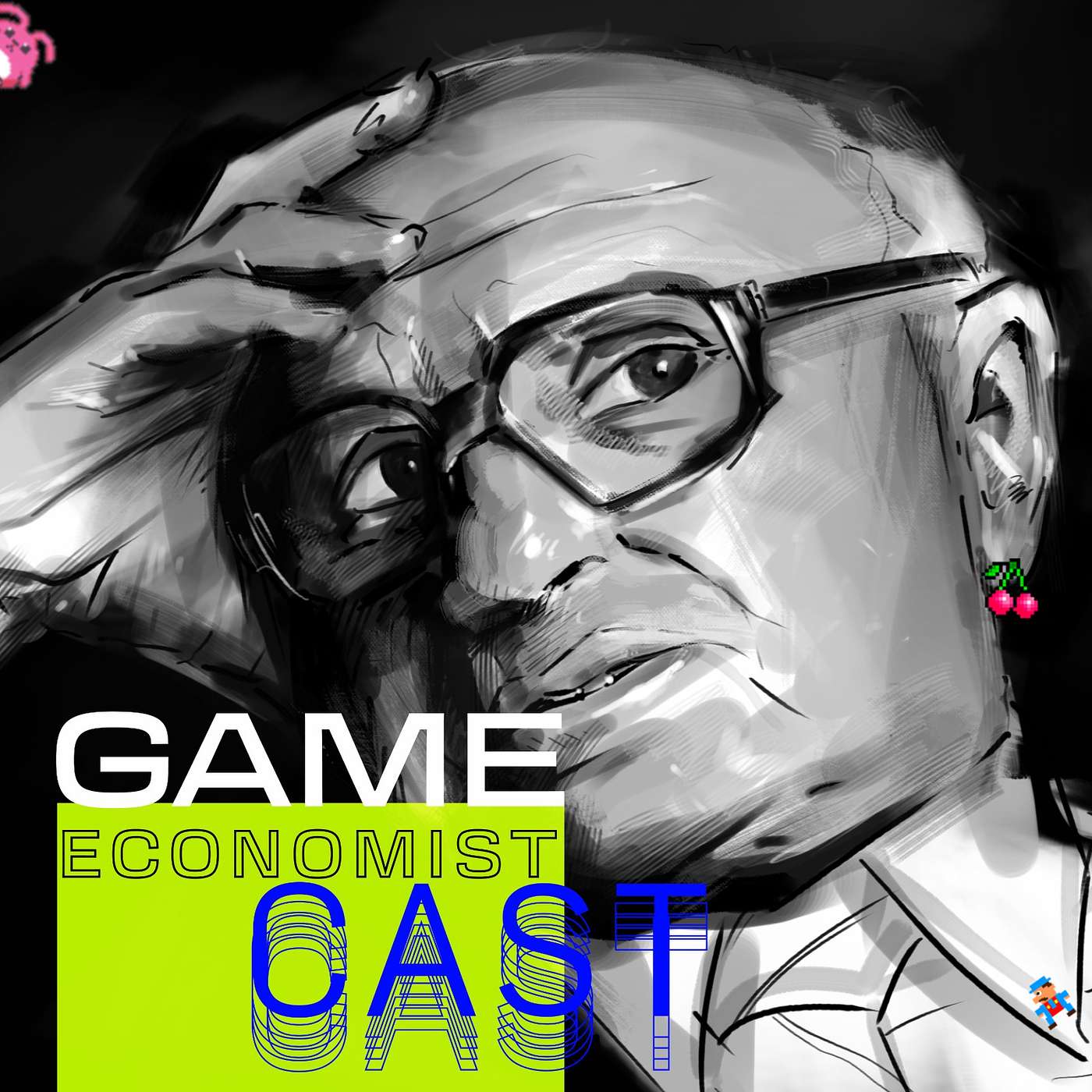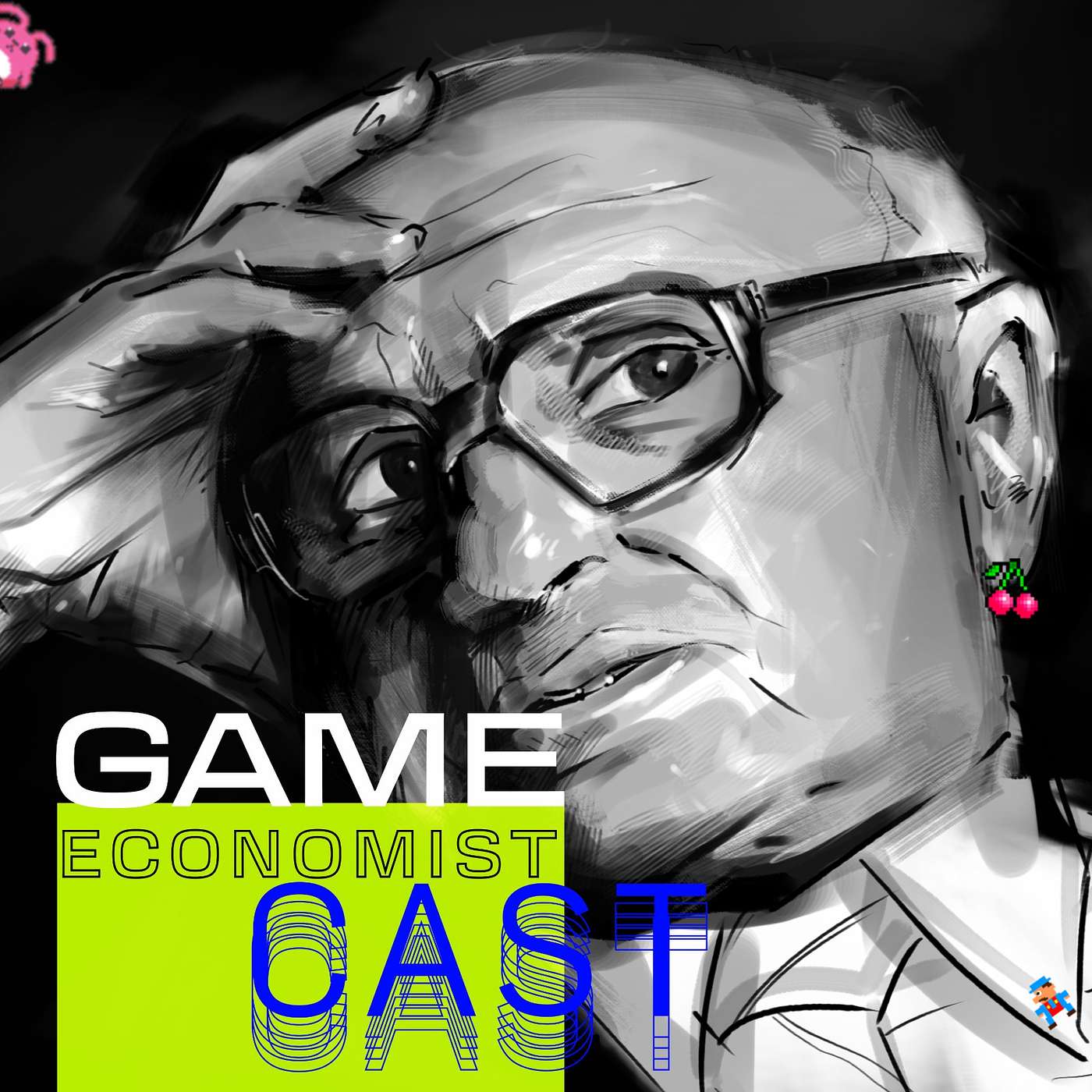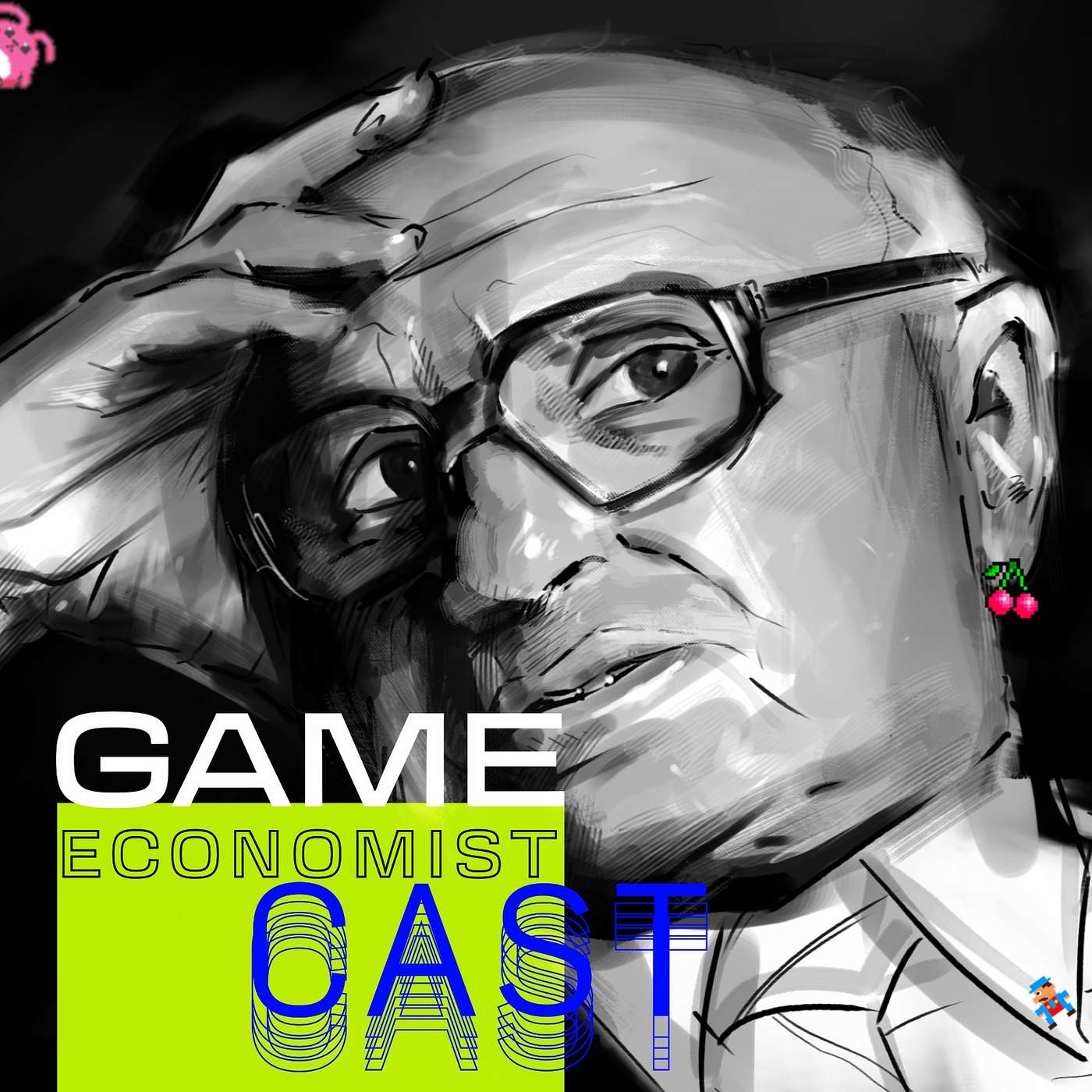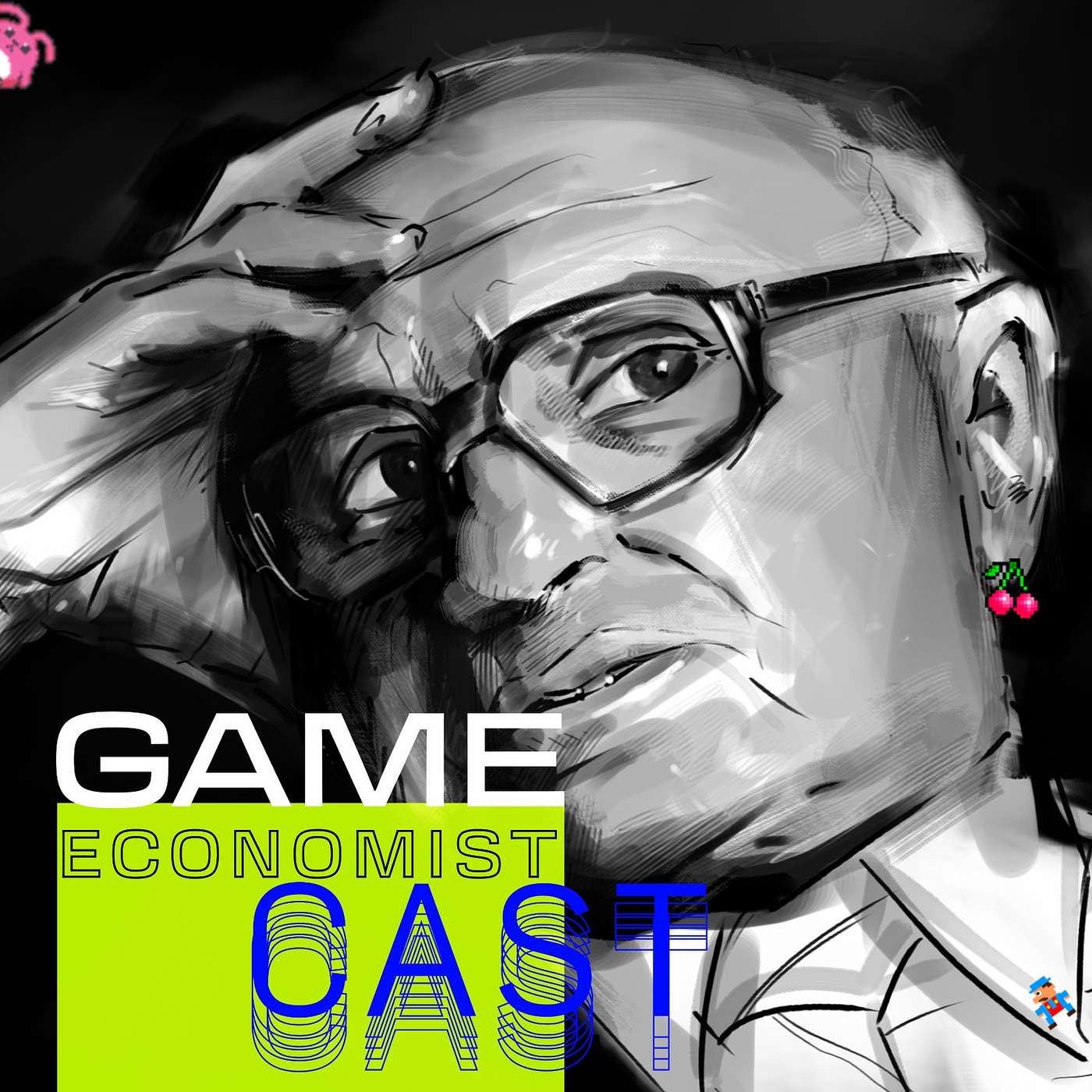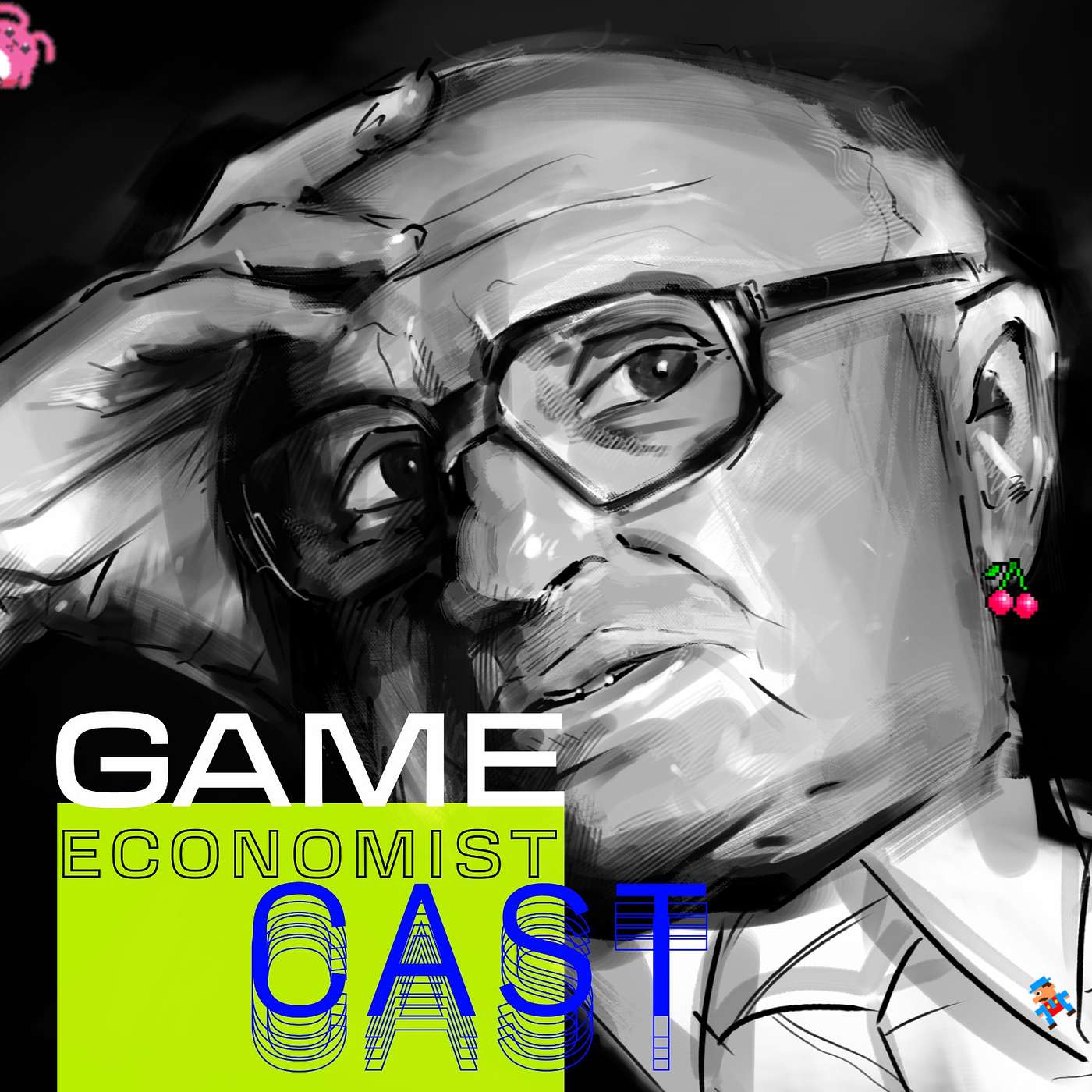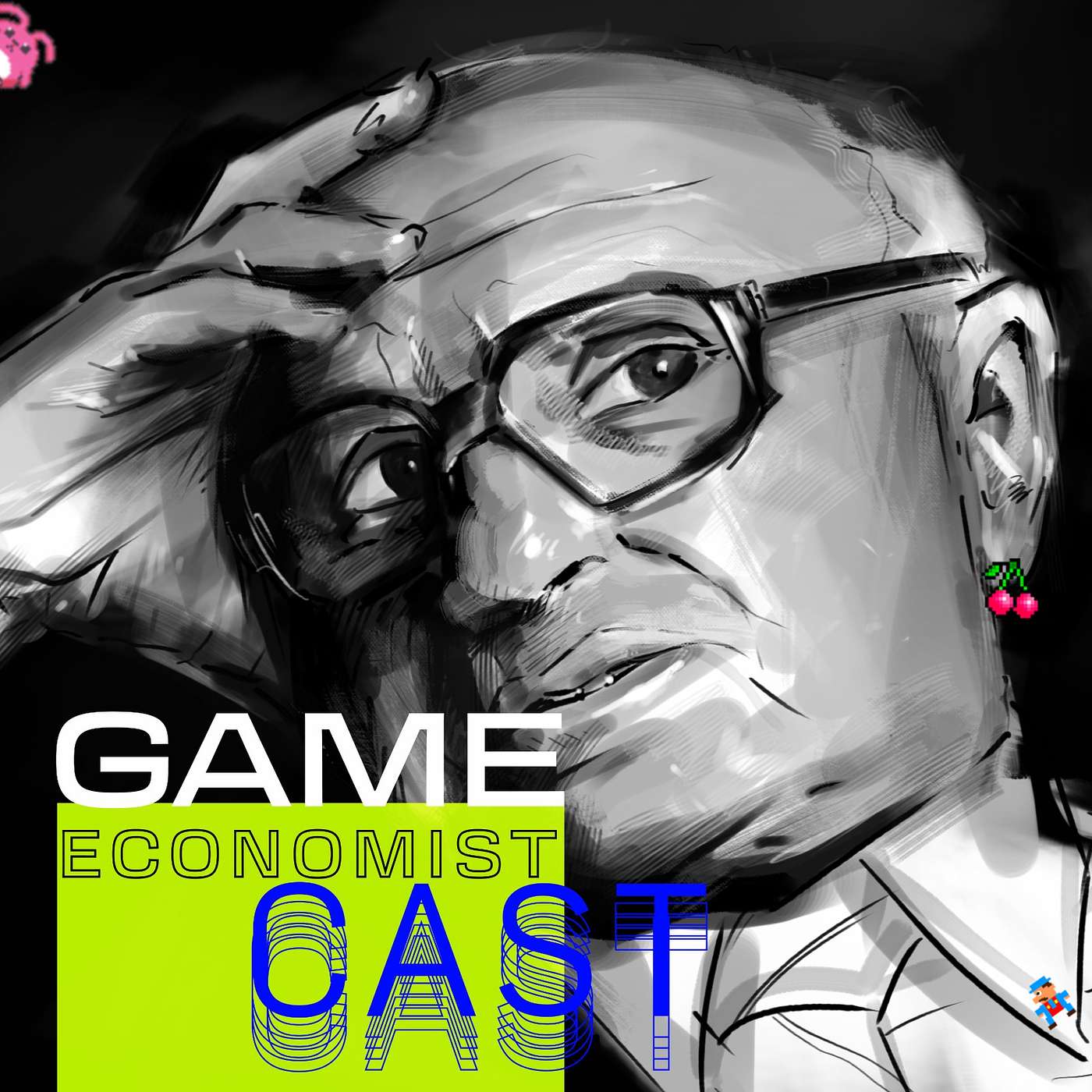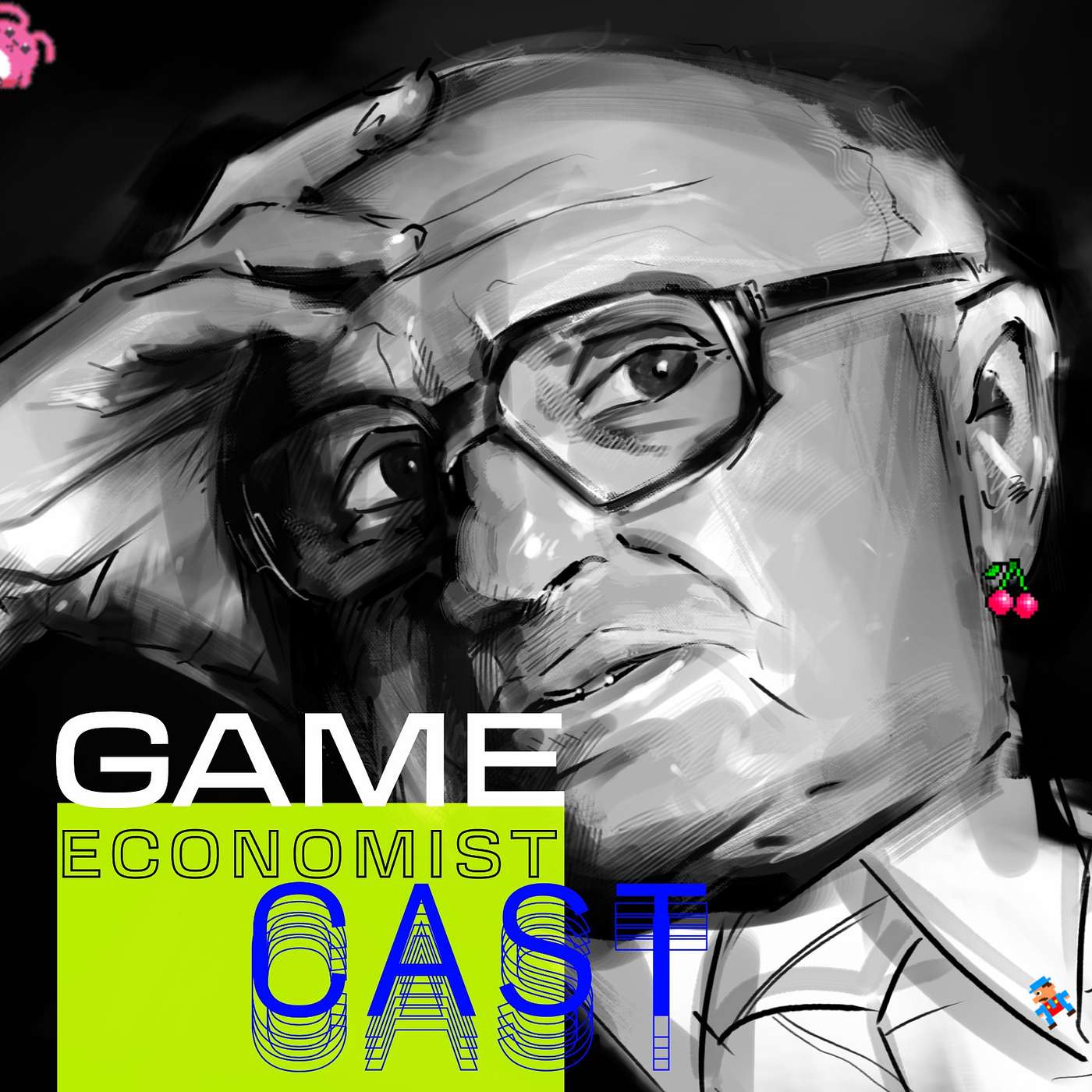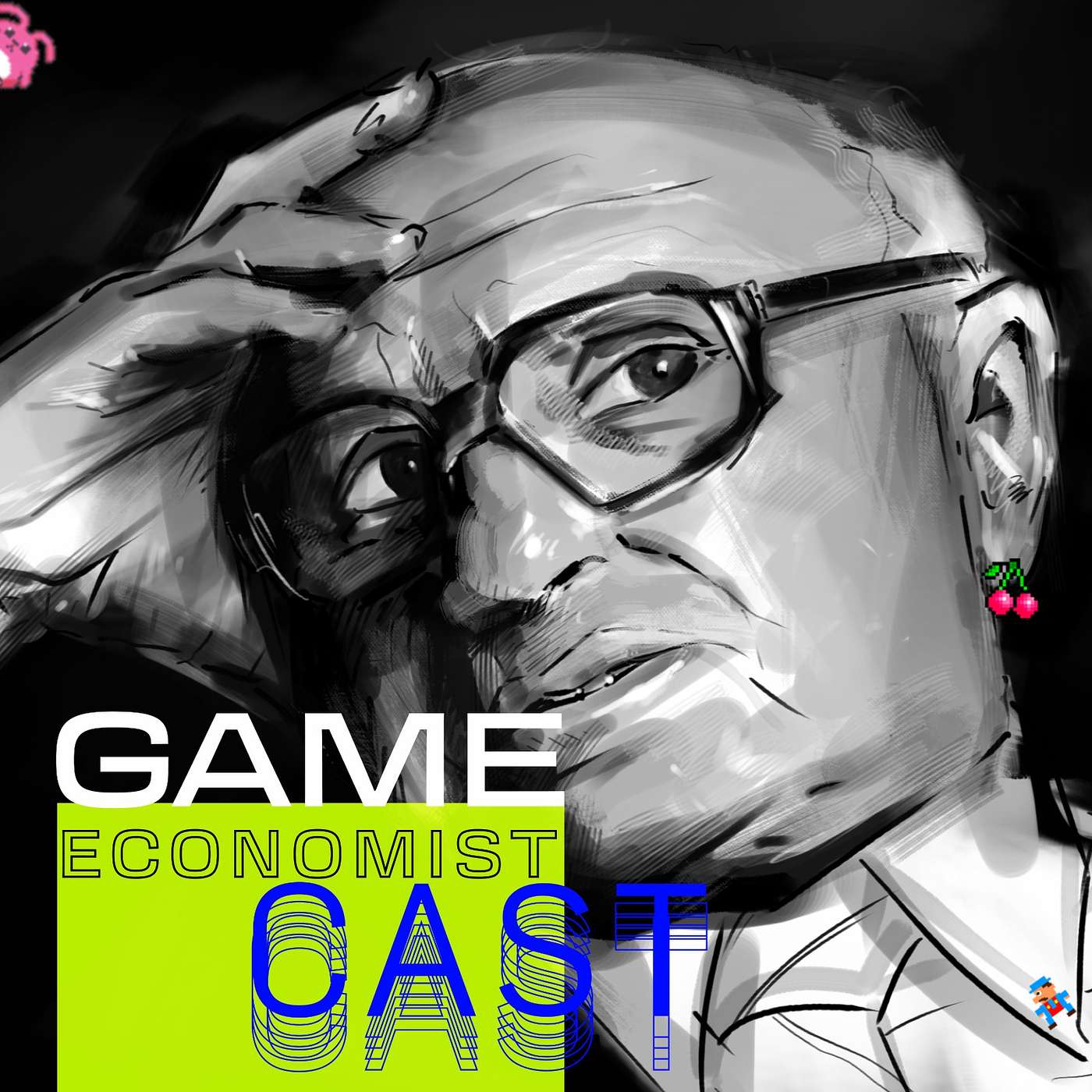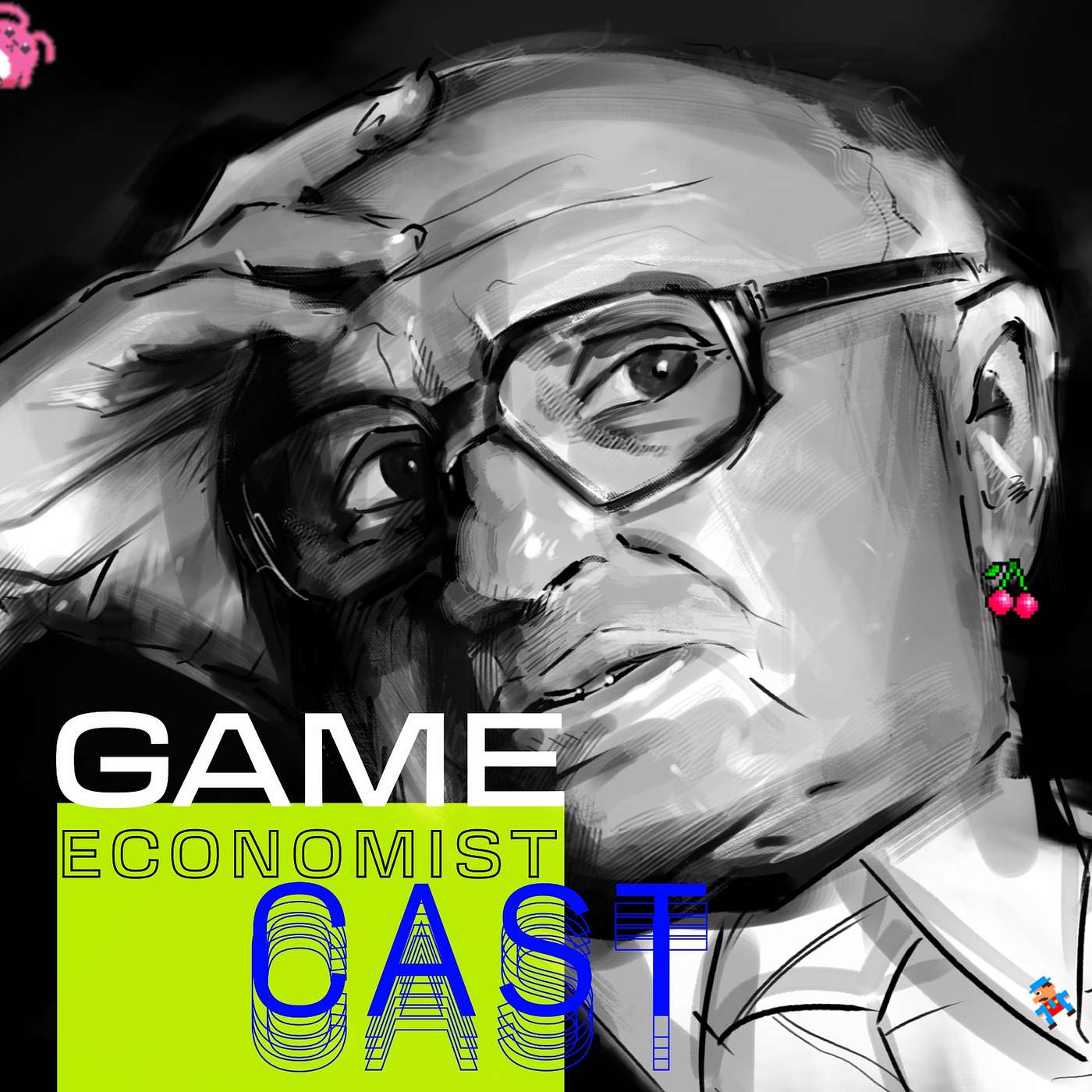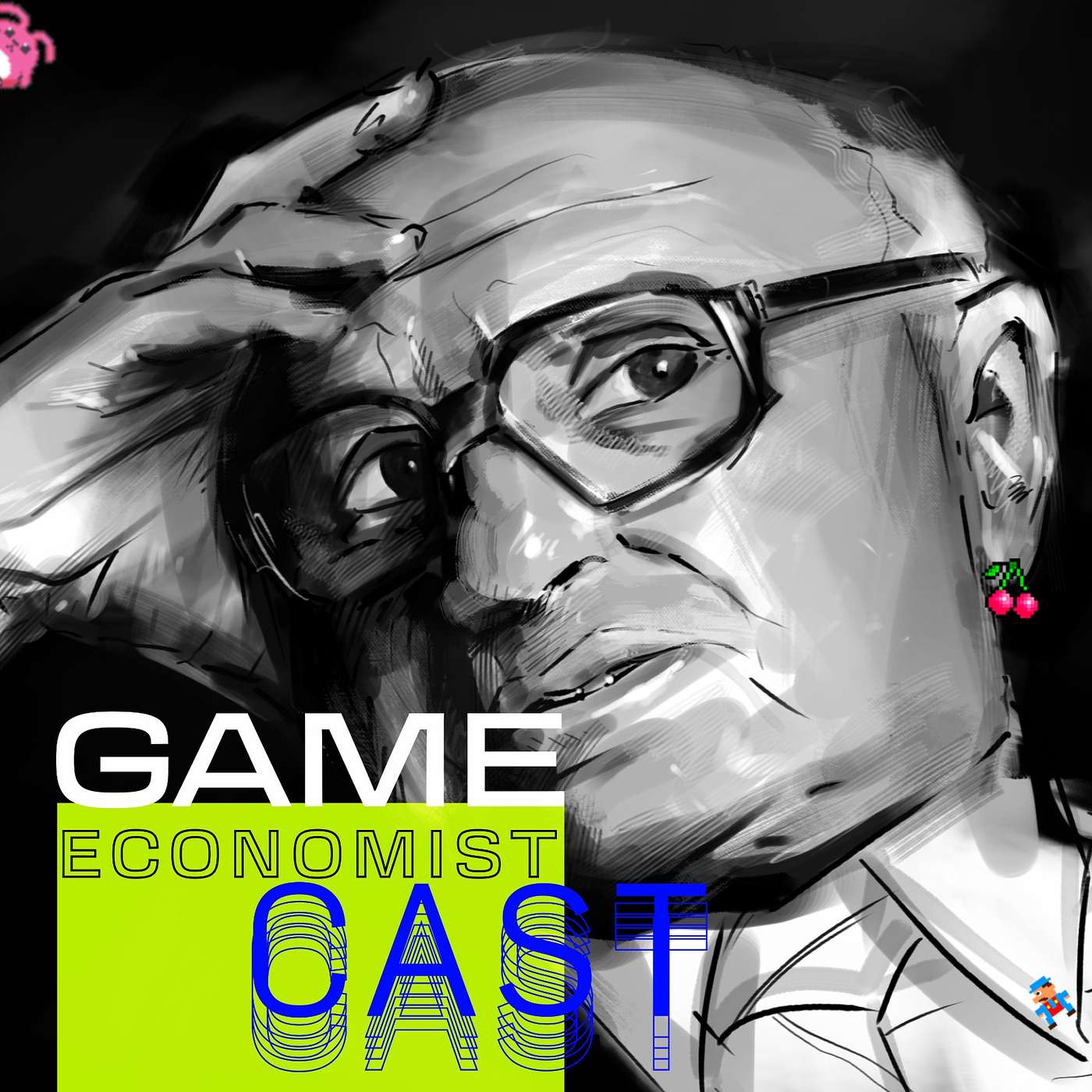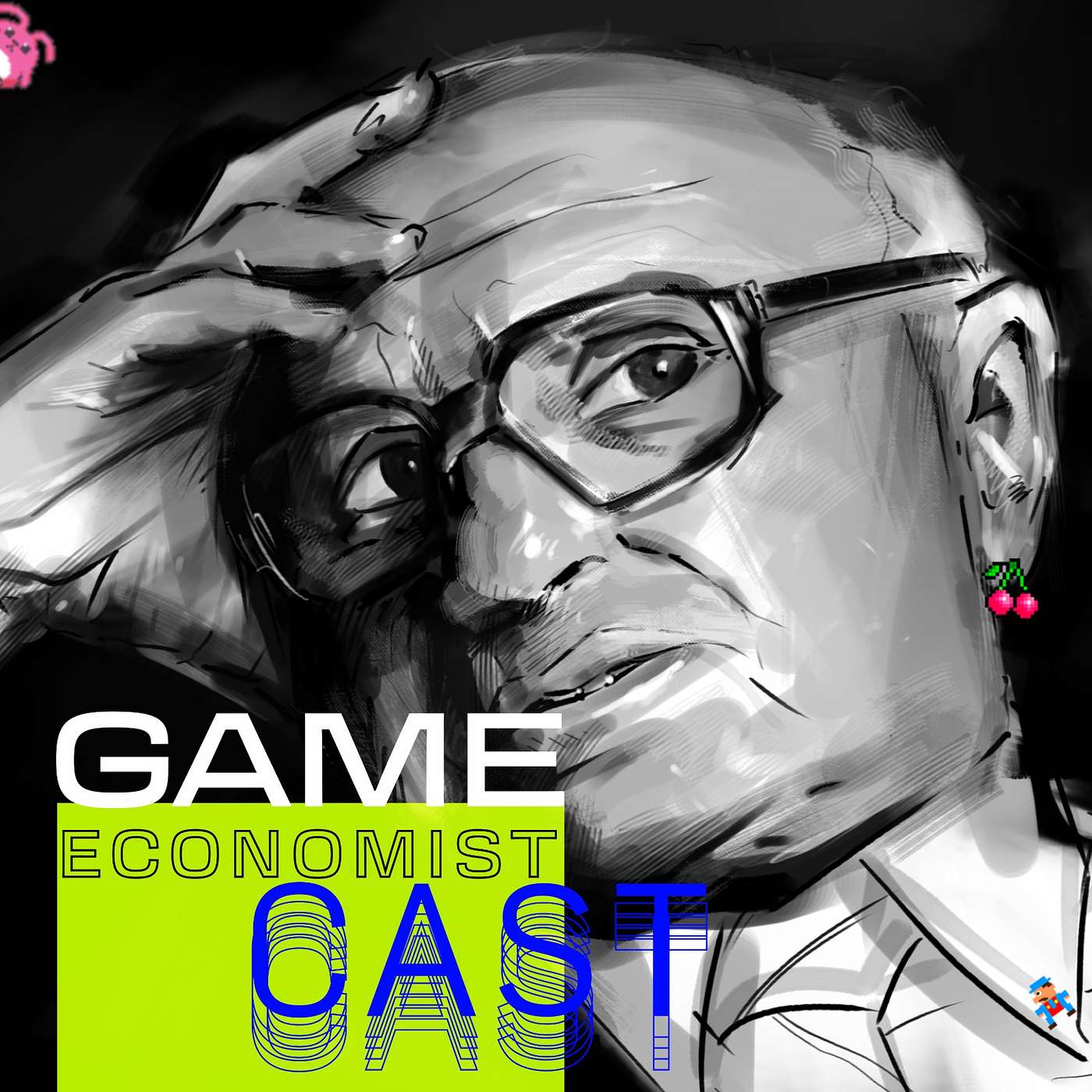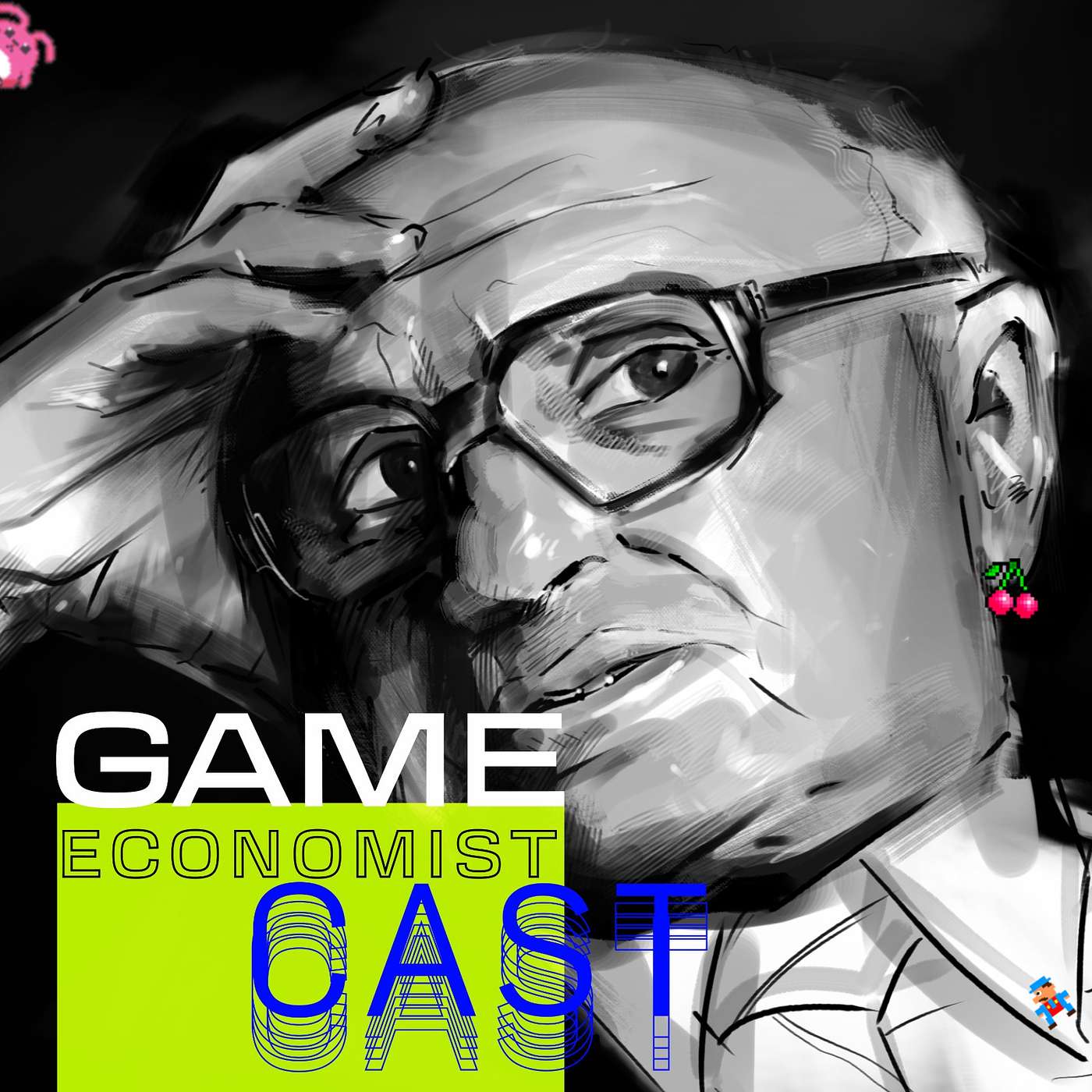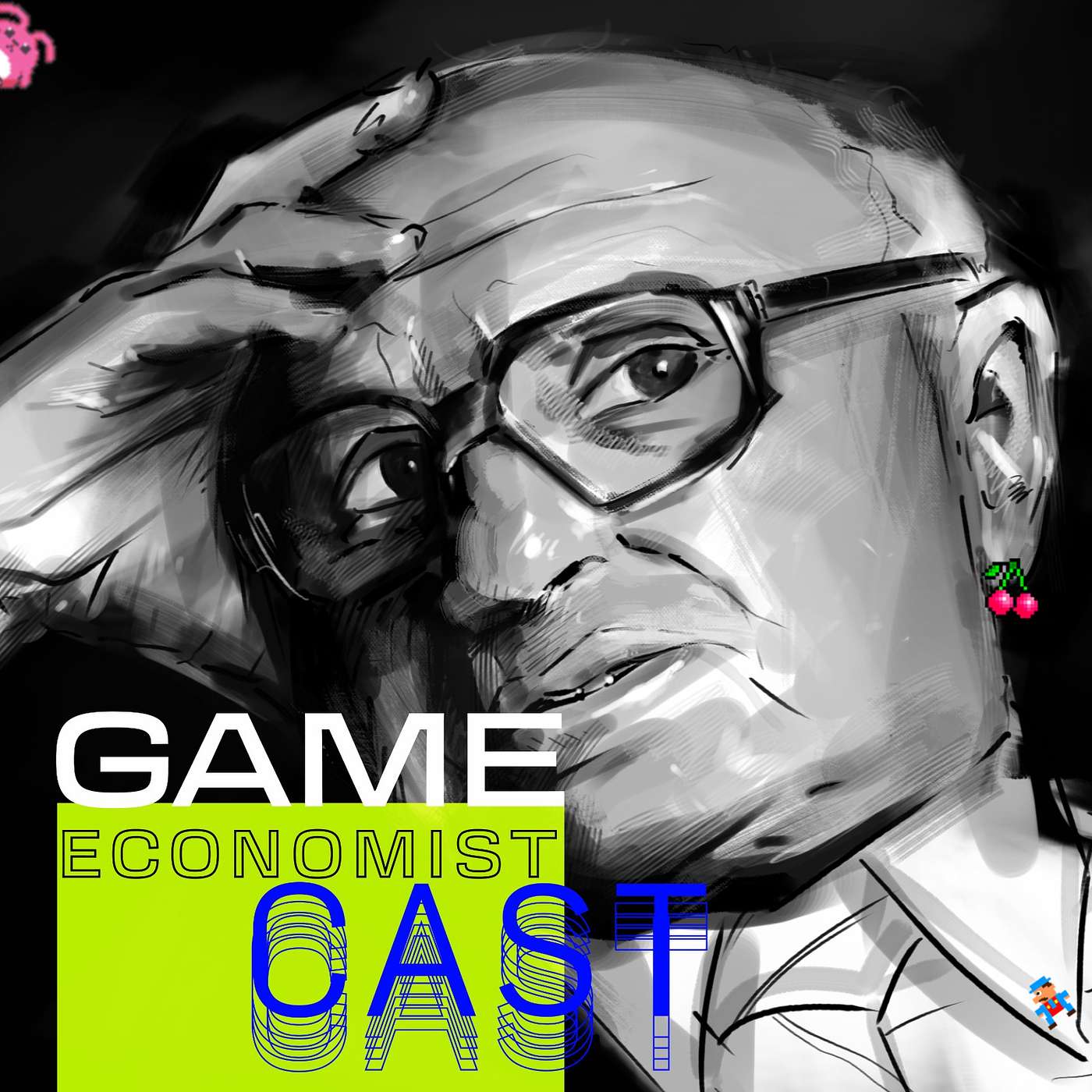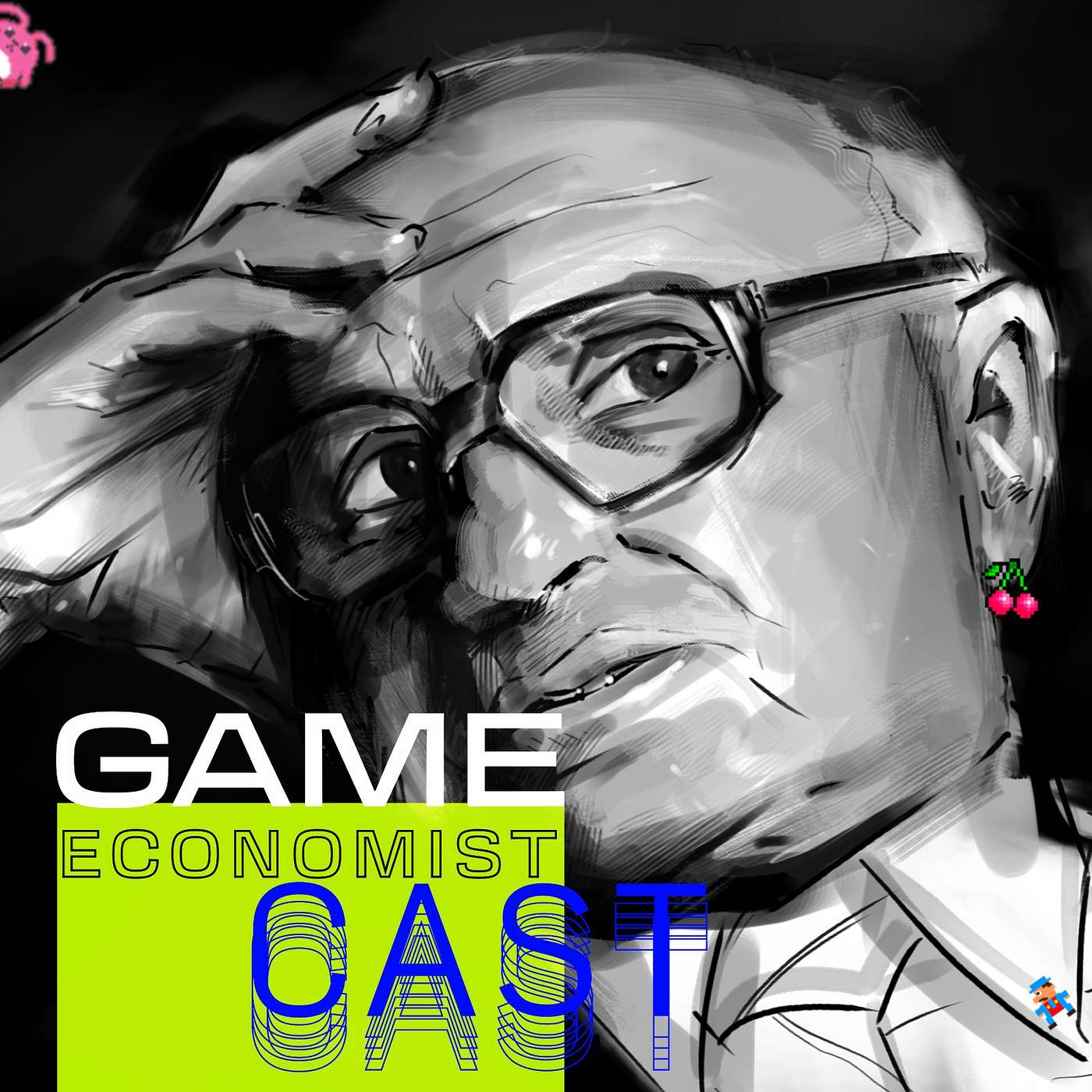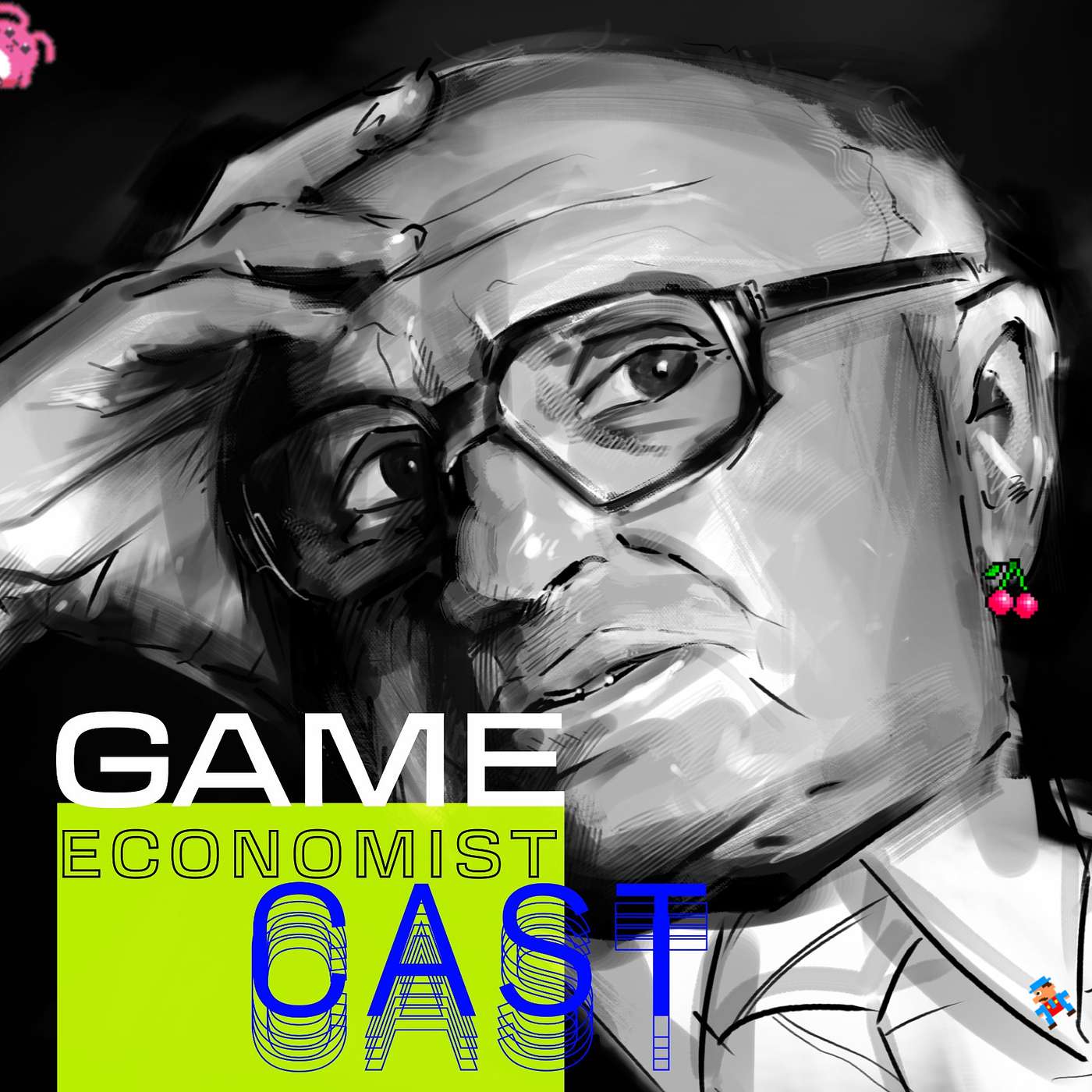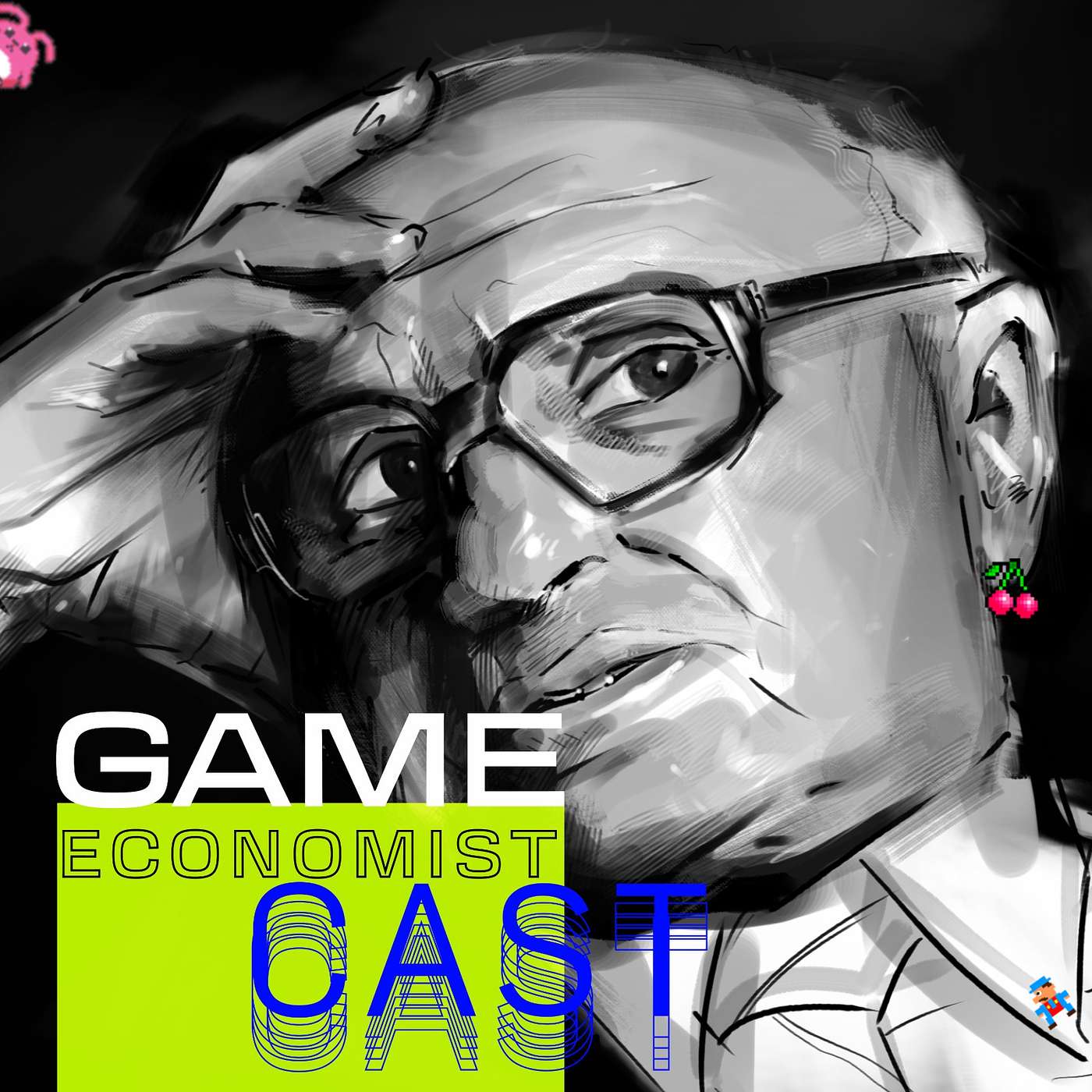Discover Game Economist Cast
Game Economist Cast

Game Economist Cast
Author: Phillip Black
Subscribed: 15Played: 89Subscribe
Share
© Phillip Black
Description
What does the new wave of open economies mean for monetization? Will negative externalities overcome cosmetic economies in the long run? What exactly does a game economist do?
Game Economist Cast is a roundtable discussion of the latest developments in mobile, HD, and crypto games, through a bunch of people figuring it out using the economic toolkit.
Game Economist Cast is a roundtable discussion of the latest developments in mobile, HD, and crypto games, through a bunch of people figuring it out using the economic toolkit.
51 Episodes
Reverse
If the majority of mobile casuals' target audience takes Ozempic, what effect does that have on games? No one's asking these questions, so welcome to the Game Economist Cast. Weight loss drugs, AI copilots, and gambling apps dominated the most expensive media real estate on earth, and games were barely in the frame. In this episode, we unpack what that signal means for interactive entertainment, Eric uncovers Riot’s 2XKO downsizing to Google’s Genie 3, and the future of engines. Phil previews his GDC talk on the economics of a billion-dollar cosmetic economy, Chris breaks down his attempt to design and publish a trading board game, and we ask a harder question: in a world of Ozempic and infinite AI supply, what actually happens to gaming demand?We discuss:The 2XKO reset and the economics of niche within niche genresTeam size, burn rate, and why a 160-person fighting game team changes the break-even mathFree to play cosmetics versus box price DLC in a capped DAU genreWhy betting apps can out-monetize most games on ARPDAUHow appetite suppression might reallocate time, spending, and loop sensitivityGenie 3 and the cost curve of game productionEngines as rule governance layers in a probabilistic content worldCosmetic economies as foundational theoryScarcity, signaling, and equilibrium pricing in digital status marketsPrice discovery, private information, and turning trade into tabletop play
Chuck E. Cheese is still alive, and so is the analytics-to-product pipeline. @Amanda Cesario analytics lead turned product leader, joins @Phillip Black, Eric, and @Christopher Kaczmarczyk-Smith argue for embedded analytics, sharper language, and game systems that actually produce cooperation instead of a cosplay community. We discuss: • The missing vocabulary for economy design in live service, and how it's harmed the entire industry• Why office ball pits best start-up ping pong tables • The analyst’s real job: explaining “why,” then realizing the only way to fix it is to own the lever • Embedded analytics vs centralized service orgs; who beats who • Roblox as a laboratory: aspirational visibility, server “neighborhoods,” and system norms that communicate more than art • Iterated Prisoner’s Dilemma, Axelrod’s tournaments, and why tit-for-tat is a design principle • Monopoly Go partner events as rare, genuine, cooperation-through-repeated-interaction design • Why Discovery Zone died, but Chuck E. Cheese prints money anyway
Is fair matchmaking actually bad design? And how exactly did gaming companies fumble the bag when it came to the army of PhD psychologists they employ? We talk: • Sweepstakes, social casino, velocity, and why most players never cash out • Why Wordle feels flat to some designers and why elegance is not the same as progression • Surveys as UX, not truth machines, and how to extract signal without lying to yourself • Compensating differentials, handicaps, and why 50 percent win rates kill progression • Bots, deception, and whether games are magic shows or fraud
What happens when autobattlers fail to monetize? We pull Arto Huhta [https://x.com/ProofOfDork] into the cast to chat about Telegram’s pseudo-WeChat ambitions. Eric releases a distrack on Game Designer's obsessed social spaces, and Phil wants more blood from psychologists' nonsensical F2P "choice overload." Chris enleashes a model-meets-UGC experiment: a three-algorithm simulation that shows how recommendation systems distort consumer welfare and creator inequality. We discuss:How Arto sees the split between economy design, product management, and classical economics (hint: it's not what you think)Pets as permanent progression, and the design logic behind Nonstop Knight’s monetization turnaroundWhy creator inequality explodes under bad reinforcementA brewing debate on regulation that is just getting started...Chapters 00:00 Journey to London: A Game Developer's Path 00:49 The Role of Economy Design in Gaming 01:20 From Academia to Game Development: Bridging the Gap 03:16 Experimentation in Game Design: Lessons Learned 05:22 The Intersection of Game Design and Economics 10:07 Understanding Game Development Roles 11:00 Monetization Strategies in Game Design 11:55 The Evolution of Publishing Models 12:42 Transitioning to Web 3: New Challenges 13:54 The Economics of Game Spending 18:27 Introduction to Game Economist Cast 19:06 Current Gaming Trends and Preferences 20:51 Game Modes and Player Engagement 22:03 The Future of Game Monetization 27:33 The Social Hub Experiment in Fighting Games 28:26 Street Fighter VI and Social Interaction 30:28 The Rise of HTML5 Games on Platforms 32:37 The Trend of Casual Games in Tech Companies 34:42 Telegram Games: A New Frontier 37:21 Challenges in Game Discovery on Telegram 38:52 User Engagement and Retention in Web3 Gaming 39:43 Consumer Welfare and Content Creation Dynamics 43:04 The Impact of Algorithms on User Experience 49:31 Heterogeneous Goods and Their Effects on Engagement 57:35 The Impact of Algorithms on Content Quality 59:04 Understanding Algorithmic Risks and User Retention 01:00:16 Exploring Algorithm Design in Gaming Platforms 01:01:54 The Role of User Choice in Content Discovery 01:04:29 The Future of Pricing Strategies in Free-to-Play Games 01:08:10 The Debate on Standardization and Market Forces
UGC is about to change forever. In the same way all technologies govern and enable the creative, MTX will do the same for Fortnite. Or will it? Alex Seropian (Look World North, The Forth Curtain) joins the cast to discuss UEFN's ability to enable creators to monetize islands directly. We discuss:What new games will emerge with MTX?Is UGC IP defensible? What exactly is the endgame for UGC studios?What's the maximum a Roblox studio earns?Chapters00:00 Introduction to UEFN and Guest Background03:48 UEFN's New Features and Developer Impact07:22 Comparing UEFN with Roblox10:23 The Future of IP in Gaming17:47 Epic's Strategic Vision and Development Tools21:04 The Evolution of UGC Platforms22:53 Challenges in User-Generated Content26:27 Monetization Models in Gaming28:01 The Joy of Game Development30:46 The Future of Fortnite's Economy39:16 China's Role in UGC Development41:40 Feedback Loops in Game Development
Eric Seufert joins to dissect AI hype, marginal ROAS, Jeremy Bentham's legacy, and managing a multi-million-dollar marketing budget that falls empirically short. WE discuss:How do you evaluate an “AI startup” in 90 seconds without being duped?Can LLM-driven hypothesis testing replace the Monday creative meeting and outperform it?If marginal ROAS is the real constraint, why do teams still optimize to averages?When should a Battlefield-scale launch actually spend less on day one and wait two weeks?Why did free-to-play economics conquer games but stall on platforms like Twitch or Spotify?Will AI-driven volatility make electricity markets funky?
Forget the endless autopsies on why Web3 gaming flatlined, @Chris gets past the clichés and gets into the real pathology: a misdiagnosis of what “play-to-earn” was ever good for. @Eric & @Phil on vertical progression is the most important retention driver for several specific reasonsThe “market for lemons” problem in developer <> publisher relations: why developers can banbooze publishersSub to Eric and Chris' Substack here:https://substack.com/@ericguanhttps://substack.com/@chriseconomics00:00 Introduction and Free Trials in Drug Dealing00:28 Economics of Drug Dealing02:11 Personal Experiences and Data Collection03:24 Car Dealerships and Market Monopolies04:57 Gaming Industry Insights: Clash Royale19:08 Battlefield 6: Gameplay and Strategy27:11 Rollerblading Adventures28:36 Rollerblading Economics30:16 Web3 Gaming Struggles34:54 Understanding Play-to-Earn Mechanics43:42 The Market for Lemons52:24 Conflicting Data on Gen Z Spending56:51 The Importance of Reliable Economic Data01:05:43 Conclusion and Future Topics
Eric covers the economy and the system’s design of Ukraine’s Drone squadron. What does economy balancing look like in the face of war? Phil can’t stop gushing about Heroes of History, but there's one economy design piece holding it up. The crew descends into a John Maynard Keynes debate as a 4* or 5* character. Chris covers the economic impact of the UK’s new obligation for internet providers, potentially transforming UGC as we know it.https://ericguan.substack.com/p/ukraine-gamified-drone-warfare
Yat Siu, Co-founder and Executive Chairman of Animoca Brands, steps cast to defend Web3 against @Eric and @Phil’s vigorous skepticism. @Chris just want to know why gamers don’t get it. Is Web2 fundamentally incapable of grasping the promise of open markets? What is and should be promised to token holders? We discuss:Laying down Web3’s steelman caseWhy the West still doesn't get Web3 like the EastExamining the original token sin, where did it all go wrong?Do digital property rights actually hold back economic growth?
Pokémon's patent of spherical objects throwing of cartoon creatures threatens Palword's lifeblood, while Tim Sweeney has lifted, at least a percentage point, in total gaming GDP with its injunction success.How does Apple's rent-seeking rate change in the face of this ruling? Should Apple lower its rate to 15%, like it did in subscriptions? Remember, it faced competition primarily from "webstores" too. We premier a new segment: SOLVE that for EQUILIBRIUM.We discuss the marginal *monetization* effects and debate the benefits of personalization opportunities (hint: there are none) with webstores.@Chris is intrigued by Joost's piece on rising game costs, while AI's effects on the industry are measured in the Solow model. @Phil insists rising game costs mean rising revenue and stable margins, while Eric has his own doubts.Eric's on IP Laws: https://substack.com/home/post/p-161276950Joost's On Gaming Costs: https://superjoost.substack.com/p/gamings-billion-dollar-gamble
What is the GDP-maximizing set of copyright protections? 10 years? 5 years? None at all? Chris, Eric, and I debate the relevance of patents and copyright protections and the gains to network effects of knowledge. Does the "gentlemen's agreement" to avoid patent protections on game design help or hurt the industry? Chris talks about Monster Hunter's lineage and woeful service, while Eric introduces a novel use of AI in game design. Phil believes the Gini coefficient is underutilized for measuring live-ops-driven revenue.
Phillip & Eric navigate the strangely subdued landscape of GDC 2025, pondering if there really is such a thing as a free lunch. Chris dials in, wondering if his absence is secretly the key to Eric's roundtable success. They dissect the talks, the conference economics, the rise of mobile's respectability, and a guest in economy designer, Charlie Hsu.In this episode:Is the game industry actually shrinking, or just taking a nap? And if Web3 isn't the savior, what's left besides... sweeps? Is GDC just a cleverly disguised wealth transfer from sponsors to developersWhat's the latest "reasonable" pitch for Web3 in games?What's the economic model behind those San Francisco walk-up shops overflowing with candy bars right next to the register? High margins? A tourist trap? Something... else
The best tech firm experimentation seems to offer thousands of button color experiments. Dr.Runge has a better approach, which changes at every game development stage. We debate gaming's broken relationship with science, the proper experimentation framework, and how much you'd bet on yourself to complete Cousera assignments.Read Dr.Runge's new paper NOW! Showlinks:Julian RungeGaming Companies Run Thousands of Experiments a YearGame Data ProsHow to use games to build relationships with your customers
Pokémon TCG Pocket is one of a handful of games to implement P2P trading on mobile. Yet it sucks. On purpose. As @Eric explains, their game economy needs high sinks to combat hourly sourcing of card packs. Without the nearly 80% trading tax, prices would tend toward $0. However, that's secondary to a UX that is so gimped it makes Friend Codes look seamless by comparison.We deconstruct Matthew Ball's new State of Gaming report slide by slide (or at least curated slides.) @Chris thinks we're failing to keep pace with inflation, putting the industry at risk, while @Phil wants to know why TikTok is winning at the margin. Is gaming becoming LESS compelling relative to social media?
Loot boxes have all the markings of a moral panic. Dr.McCaffrey reviewed the emerging literature, and like the research on video game violence, it's destined for methodological malfunction. We discuss why everything isn't a loot box, the apathetic interest of economists in games, what George R.R. Martin's economic equilibrium teaches us, and how to get more people interested in economics.Follow Dr.McCaffrey on Twitter [1], see him on video games [2], and read his loot box and A Song of Fire and Ice papers here [3].
Is game balance bullshit? The crew goes toe-to-toe debating Sirland’s Don't Use Math in Balancing Games. Chris emerges from his Roblox hibernation, Eric tells us Street Fighter is more accessible than platform fighters, and Phil goes bonanza for All in Hole.
Anti-cheat economics, web3 property rights, Deirdre McCloskey, institutional incentives, Halo UGC, and the if single player games have a natural advantage outside the West. Oh my.Dr.Jason Arentz finally guest stars, and he's bringing the econ juice, finally striking a 50/50 web3 split on the case. Zynga Car Price Experiment: https://www.gamesindustry.biz/zynga-apologizes-for-random-dlc-pricing-experiment
Economist Dr.Peter G. Klein joins the cast to discuss Why Managers Matter: The Perils of the Bossless Company. We debate Valve's organizational structure, the evidence for manager economic impact, and Sweden's success. Read more about Dr.Klein here and find his book below:https://hankamer.baylor.edu/person/peter-g-klein-0https://www.amazon.com/Why-Managers-Matter-Bossless-Company/dp/1541751043/15:37 Why Managers Matter22:29 CEOs35:22 Valve
Phil and Chris return from Asia, and it's gachupon from here in-out. Eric talks vertical progression in single player games, while Chris actually agree on the future of web 2.5. The economics of unions weigh heavily: within or between professions? The crew finally makes it to THE KING PAPER; Eric and Chris make surprising revalation.Quantity discounts on a virtual good: The results of a massive pricing experiment at King Digital Entertainment
Eric develops an economic model to explore or exploit game development decisions, while Phil wants a block-grant style gate process to align incentives. Chris is back at Marvel Snap, and boogies with some new social casino mechanics.The team reviews a new Call of Duty matchmaking paper with some surprising and revealing data...


